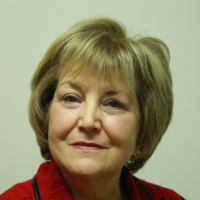The Best Mother’s Day Gift
Why women around the globe play a central role in creating better economies.
May 10, 2014

Mother’s Day has become a commercial phenomenon in the United States and elsewhere in the Western world. People living in these countries are flooded with messages about the perfect gift for the one who loves us unconditionally. With one crucial caveat: We regale her with flowers and perfume, but not always with love and respect.
What Mother’s Day 2014 should really celebrate is a little understood statistic about women. Once properly understood, it will change our approach to economic development.
Treating mothers well in the workplace makes good sense for the bottom line. And now, it is proven that the way a nation treats its women is an indicator of its ability to grow economically and succeed.
An economic fact of life
Once upon a time, this type of data was often thought of as feminist propaganda. But this economic fact of life goes beyond women’s studies programs. It is clear that a society that neglects its women as economic actors will fall behind in its capacity to grow.
Janet Yellen, the first woman to lead the U.S. Federal Reserve, said that the benefits of the growing participation of women in the economy are “clear and substantial” as the United States continues to recover from recession.
Yellen added that the success of the United States since the 1970s, including the sustained growth of family incomes, coincided with the fuller contribution of women in the economy.
For that reason, President Obama, in his April executive order to fight pay discrimination and strengthen enforcement of equal pay, was only reinforcing a long-known fact about the way forward for the United States.
While the executive order will not right all the wrongs of income inequality, it has certainly made it harder for U.S. employers to conceal disparate salaries that once were the way women’s participation in the work force was treated.
Stunning pay gap
Women are the primary breadwinners in 40% of U.S. households but are bringing home 23% less than their male counterparts. That stunning pay gap means less for families’ everyday needs, less for investments in our children’s futures – and, when added over a lifetime of work, substantially less for a woman’s retirement.
And that pay gap is significantly greater for women of color, with African-American women earning 64 cents and Latinas earning 56 cents for every dollar earned by a U.S. Caucasian man.
What does this mean for economic development in a globalized economy? It’s really simple: Women’s participation in a community’s economy can make or break any investment made by the international community. Their participation improves lives and ensures stability and economic growth.
More important, however, is that sustaining these gains – whether in agriculture, health care delivery, or early childhood education – are not possible unless women are factored into the design and the final outcome of the investment.
And this means that governments and the private sector who invest in any given country must create a strong partnership that values the salience of women’s participation in the economy.
Across the global south, women have always borne the burden of agricultural work, child care and domestic labor. Yet, in spite of tremendous investments in women’s economic development – from micro finance programs to girls’ elementary education and literary programs – the fruits of such programs are often negated.
The reason why is cultures that would keep women in slave-like conditions through forced child marriages and/or total elimination of such simple rights as access to basic health care, primary education, or even contact with family members after marriage.
Too often, women are thought of as consumers of security, as the victims of conflict. Indeed, there is no shortage of real evidence of this type of abuse.
Women as economic producers
But women are also producers of security in their neighborhoods. They are the first line prevention of children becoming gang members. They are the ones who organize neighborhood watches when crime impedes freedom of movement.
And women are often the interlocutors with local police authorities who often seek women out to help them gain access to areas held by criminal gangs.
Partnerships with women in a community by local and national government agencies can create a powerful nexus between security and development. Moreover, more security enables a better climate for investment and growth.
Changing our understanding of women as producers in any economy is the first step to building a culture of equality. If we are to create a movement that values the work of women globally, we must start in our own country. There we must work with the wide range of government programs and civil society organizations that can help take the vision of a world of education and productive women to a global level.
For quick results
All of that is why we should use this Mother’s Day to reinforce a message that will be heard worldwide: Treat women as economic actors and treat women as an integral part of any community’s development program and the results will come quickly.
Ensuring the value of women in any society can become the best gift any mother can get – more than flowers, candy or any other material good. And this gift is affordable and in the national interest.
When our nation invests its tax dollars in helping women in the developing world, and when it encourages foreign direct investment that partners with women, the result will not only be higher returns.
Such investments will also demonstrate that ignoring half of the world’s population will not solve the problems of war, poverty and neglect.
Editor’s Note: Charito Kruvant, President and CEO of Creative Associates International, co-authored this feature.
Takeaways
A society that neglects its women as economic actors will fall behind in its capacity to grow.
African-American women earn 64 cents & Latinas earn 56 cents for every dollar earned by a US Caucasian man.
A message for Mother’s Day: Treat women as economic actors and as part of any community’s development program.
The treatment of women as economic actors brings quick results.
Read previous

Africa: We Feel Your Pain (Sometimes)
May 9, 2014
